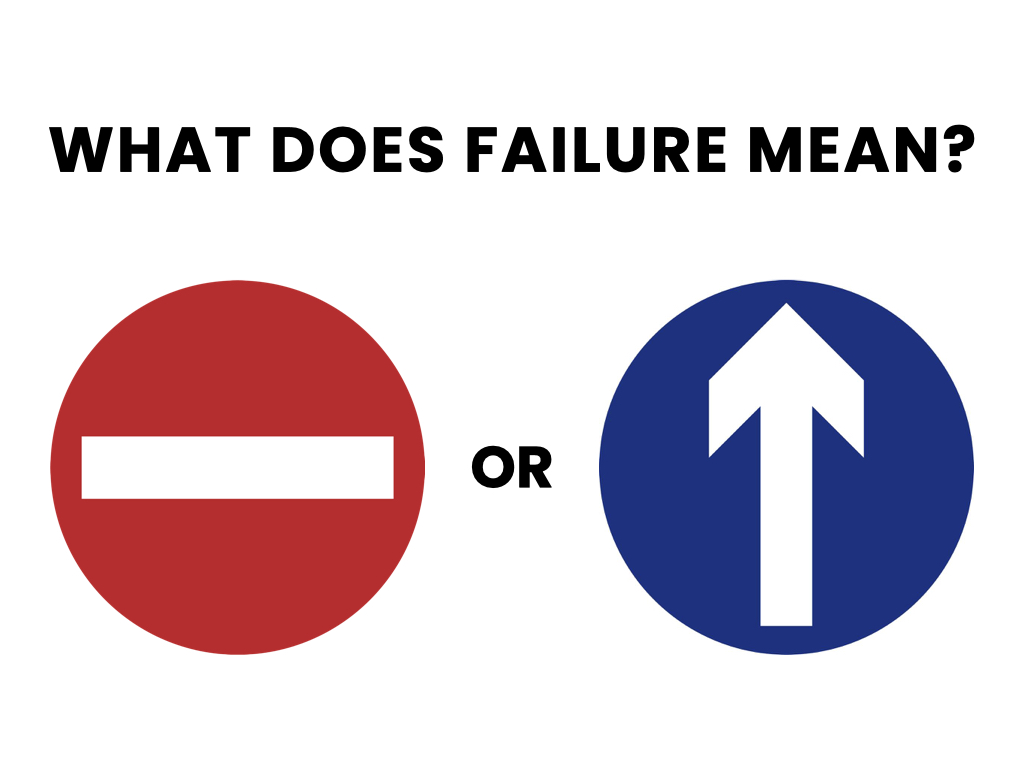Tag: Performance
3 Ingredients for Impact, Growth and Trust


—
On Saturday I gave a talk at the Chateuaform La Mola Campus here in Barcelona. Their sales and logistics teams from six countries met for a weekend of fun, reenergizing, and to learn to leverage each others strengths. This latter part is what I was asked to talk about.
We tend to know what kinds of teams we want — safe, winning, fulfilling, etc. — but sometimes we struggle with what needs to go in order to have these outputs. So I decided to focus on what teams want to do in order to have more impact, continue growing, and generate greater trust. It turns out, it’s not rocket science.
1. How to have more impact
If we want our work to have a beautiful impact, we want to begin with having a purpose. Purpose is the intention of our actions. To define our purpose we answer the question: “What for am I doing this?” Teams with poor purpose are teams with no impact. Great purpose means beautiful impact.
2. How to make the team grow
We all know that it is important to grow, both as individuals and as a team. But what do we put in to make growth happen? Answer: Feedback. Feedback is the gift of growth. Without feedback we don’t grow. Positive feedback gives us the energy to keep growing, constructive feedback gives us the direction in which to grow. Teams that grow are teams that rock at feedback.
3. How to generate trust
According to the Trust Equation, a good dose of intimacy and lots of generosity is required for trust. Intimacy does not mean you tell me the things you tell your partner. It means you tell me things the way you would tell your partner, and this builds trust. Generosity is important simply because selfish people are assholes and can’t be trusted.
The key here is vulnerability, exposing ourselves by being transparent and sincere about what is going on and how we feel about it. The secret to being intimate and generous at the same time is to show vulnerability. Teams with high levels of trust are vulnerability junkies.
I had a fantastic time with this Chateauform group. It was inspiring to see a team driven by purpose, open to feedback and courageously vulnerable.
Wisdom for Teams #37


—
Impact Players [i.e. people who are doing work of exceptional value and impact] see uncertainty and ambiguity as an opportunity to add value.
—
LIZ WISEMAN (1964), Researcher and executive advisor, author of New York Times bestseller Multipliers: How the Best Leaders Make Everyone Smarter.
Wisdom for Teams #33


You are already naked.
There is no reason not to follow your heart.
—
STEVE JOBS (1955 – 2011), American business magnate, industrial designer, investor, and media proprietor.
Wisdom for Teams #32


Ring the bells that still can ring
Forget your perfect offering
There is a crack, a crack in everything
That’s how the light gets in.
—
In the song Anthem by LEONARD COHEN (1934 – 2016), Canadian singer-songwriter, poet, and novelist.
Wisdom for Teams #26


—
People learn more from their own mistakes than from the successes of others.
—
RUSSELL LINCOLN ACKOFF (1919 – 2009), American organizational theorist, consultant, pioneer in the field of operations research, systems thinking and management science.
How’s Your Psychological Immune System?


Photo by Zachary Kadolph on Unsplash
I recently listened to a guided meditation where William B. Irvine, an expert in Stoic philosophy, explained the idea of a psychological immune system. Imagine Billy, a child who grows up never being exposed to anything unpleasant, never receiving any bad news, never criticised or insulted, and always having someone solve his problems. What will happen to the adult Billy when he goes out into the world? How will he deal with setbacks?
—
Whereas the biological immune system protects us from sicknesses caused by germs, the psychological immune system protects us from the unpleasant emotions that are triggered by life’s setbacks.
—
The world is imperfect, which means shit will happen. So it seems wise to strengthen our psychological immune system in order to better deal with setbacks. How can we do this?
- Psychological vaccination: Irvine suggests we regularly use the Stoic technique of entertaining negative thoughts, like imagining losing something or someone. Or recognising that our lives could be much worse and imagining what that would look like. He says we don’t want to dwell long on these negative thoughts, but for it to be flickering moments. These thoughts work like a vaccine, preparing our psychological immune system for life’s setbacks. Another Stoic technique he recommends is called “the last time”. I talk about it in this video here.
- Psychological exposure: Another way to develop our psychological immune system is to expose ourselves to “germs”. This means deliberately moving out of our comfort zone, and doing things that are physically and/or emotionally uncomfortable. For some people, karaoke in front of a big crowd will do the trick.
—
In what shape is your psychological immune system? A good measure is how often you feel outraged or lose control to anger. Another is the average mood of your mind. Is it tranquility and confidence, or agitation and anxiety?
—
It’s naive to think we’ll live without setbacks. Preparing for them by strengthening our psychological immune system is the wise thing to do.
The Meaning of Failure

When I was 12, my sister Fatima and I sang a psalm at a wedding. She sang the verses, and all I had to do was sing along in the chorus. Simple enough, but I bombed it. Totally out of key. That day, I learnt I couldn’t sing.
A few years later, I learnt to play guitar and joined the youth choir in church. Truth be told, I was more interested in hanging out with my friends and being around girls than singing. After all, I couldn’t sing.
Then I had music classes in the seminary. But I struggled a lot. When I sang in the choir, the conductor, my friend Marco Luciano, would glare at me from time to time. That was code for: Shut up! Just move your lips and pretend you’re singing. No surprise here, after all I couldn’t sing.
While still in the seminary, I played guitar and double bass in two bands. We weren’t famous, but enough to go on tour in the summer. I composed songs for those bands. But I never sang. After all…

Lately, I’ve been enjoying some quality time with my guitar. When my daughter is not around, there’s no one to sing. So I have to sing. At 45, I realised I can learn to sing. I’m no Pavarotti, but I was capable of singing in a recent talk I gave. And my neighbours haven’t complained… yet.
There were many signs indicating that I could probably learn to sing: the choirs, the instruments, the bands, the composing. But I didn’t learn because I thought I couldn’t, plus there was always someone else to do the singing.
Failure means we don’t know something. It doesn’t mean we are incapable of learning it. When we fail it might be a good idea to create ways to force us to learn, at least just a bit.
—
Failure is an “ahead only” sign — you must keep going at least until the next intersection.
—
As teammates, friends, lovers, parents what sign do we hold up when someone fails?
9 Hours of Zoom, Really?


Photo by Chris Montgomery on Unsplash
—
About a month ago, I was catching up with my great friend Milu, when she asked about work. I told her I was super excited with my latest client, the Spanish branch of Westwing, an inspiring European eCommerce in Home & Living. I also told her I was a little scared. They wanted my signature course “From Bummer to Booster: 12 Steps to Become a Badass Team Player”.
I had previously done bits and prices of this online. But this time it was the full version: two days, from nine to six, all on Zoom. What’s more, I’ve been doing this course in person for nine years, so I’ve refined it to the point where — without wanting to toot my horn too much — it’s become a transformational experience.
So, yeah, I was a little concerned about how effective it would be online. Would folks survive these long hours? Would it be worth it? Without even letting me finish, Milu unequivocally asserted: “You’re gonna nail it.” I full heartedly welcomed her encouragement.
Today I’ll conclude the fourth round of this course with Westing. Was it worth it? The outcomes and the feedback allow me to confidently answer: “Hell Yeah!” It would not have been possible without the outstanding vibe that Westwing has (btw their products are also outstanding!).
Conclusion: If you’d asked me a year ago if my workshops would work online, I’d say no way. Today they all happen online. There is still much to learn and refine but it is nice to see the magic of transformation also happening online.
Wisdom for Team Players #6


—
“Management is doing things right.
Leadership is doing the right things.”
—
PETER DRUCKER (1909-2005), Austrian-American management consultant, educator, and author.
Six Rookie Mistakes When Leading Remote Teams


—
When there’s a sea storm, captains are called upon to reassure their crew, so that together they keep the ship safe enough to move in the right direction.
The Coronavirus storm has forced teams — without warning and without delay — to work from home in improvised office spaces, fighting to focus on work while juggling several other responsibilities and concerns at the same time.
If remote working poses a challenge in and of itself, all the more so in crisis conditions, where uncertainty and confusion make the load all the heavier.
Since 2011, I’ve been helping organizations — in good and bad times — build teams, many of which with some or all their members working remotely, often in different time zones.
Here are six mistakes you want to avoid (and six recommendations) when leading teams remotely, especially in crisis conditions.
—
Mistake #1: Believe it is (almost) business as usual
—
A new paradigm is emerging, as tends to happen in crisis. And with it, new challenges are thrown at your team. It would be a mistake not to stop and fully appreciate the nature of the challenges you and your team are now facing.
It’s a mistake to think this is only about keeping things going a bit longer before it’s over. It’s a new problem. Face it with your team.
—
RECOMMENDATION: Do a diagnosis
Imagine you are Dr. House. If the challenge you now face is an illness, what would you call it?
—
Mistake #2: To execute without a roadmap
—
In a crisis it is easy for teams to get disoriented, especially if they are forced in a rush to work remotely. You might have a sense of what comes next, but the team most likely has no f**king idea.
It is a mistake to ask teams to continue moving forward without a new road map that shows this is where we are, this is where we are going, and most importantly, this is why we’re going. I wonder what Nietzsche was thinking when he said: “He who has a why to live for can bear almost any how.” 😉
—
RECOMMENDATION: Give them context and relevance
Explain to the team how their work fits in the larger picture, and why their contribution really matters.
—
Mistake #3: Fail to clarify new expectations
—
New problems require new behaviours. It it especially important that we define deliverables and ownership so that everyone knows who does what and who is responsible for making sure it gets done.
—
RECOMMENDATION: Tell them what they CAN’T screw up
New problems require exploration, which can lead to failure. It is crucial you specify what bits you expect the team to do absolutely right, the bits where failure is not an option.
—
Mistake #4: Make it a one-way road
—
If feedback is important, now it is more than ever. It’s a rookie’s mistake to fail to create NEW channels for feedback. Unless you ask, you will not know the struggles and suggestions your team has.
—
RECOMMENDATION: Tell them it’s NOT ok to stay stuck and silent
Send out questions before meetings, and ask everyone to come prepared to share.
—
Mistake #5: Neglect positive feedback
—
Humans need feedback to grow, which makes giving feedback the gift of growth: constructive feedback gives us the path for growth, and positive feedback gives us the energy to grow.
In times of crisis, teams need tons of positive feedback — the energy — to get through challenges. Forgetting to give positive feedback is a silly mistake.
—
RECOMMENDATION: Double down on positive feedback
Give twice as much positive feedback and show twice as much appreciation. Start with positive feedback. End with positive feedback. Transition with positive feedback. And ask the whole team to give… POSITIVE FEEDBACK.
—
Mistake #6: Undervalue repetition
—
The Romans believed that “repetitio est mater studiorum”, that repetition is the mother of learning. When working remotely, technical issues can make getting information across difficult.
Moreover, when remote work is being improvised moment by moment and under great uncertainty, tension is generated, which makes getting information across even more difficult.
Hence the need to repeat, repeat, repeat.
—
RECOMMENDATION: Sound like a broken record
Say it at the beginning. Repeat in the middle. Ask them to say it. And say again at the end.

